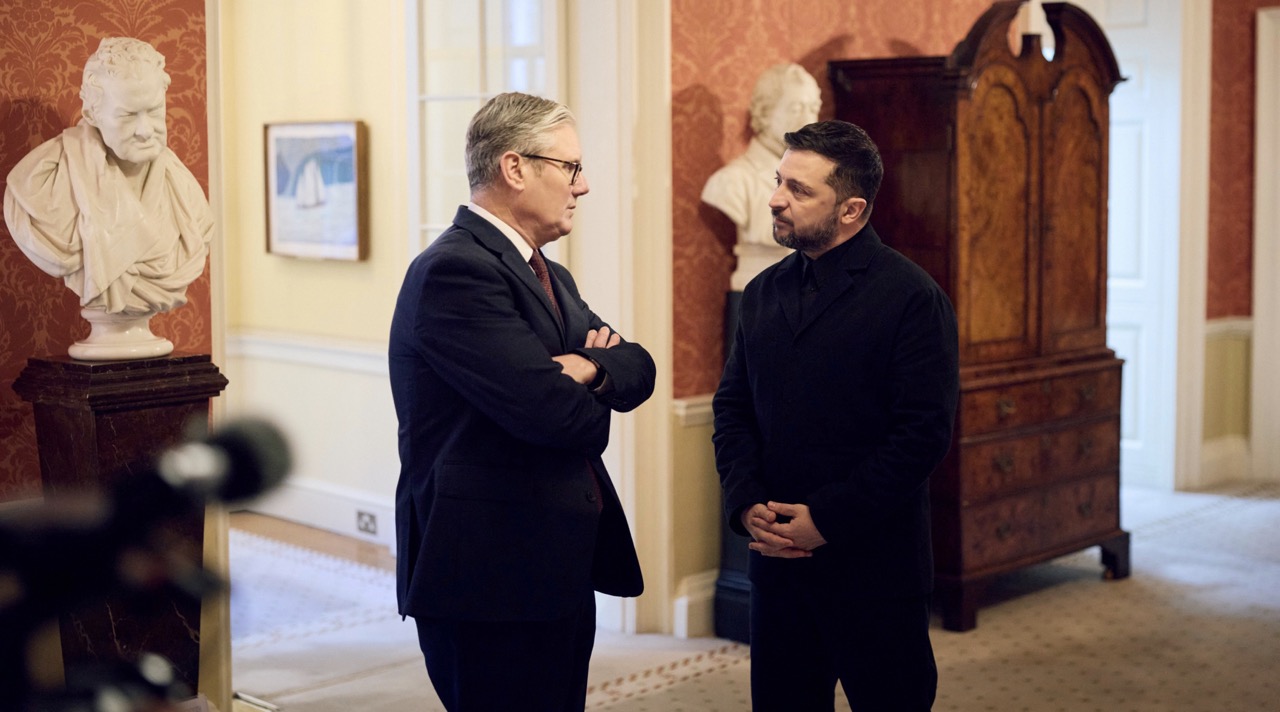British Prime Minister Keir Starmer urged European leaders at a "coalition of the willing" summit in London on 24 October 2025 to send more long-range missiles to Ukraine, as the White House's first major sanctions against Russia's energy sector this year signal a strategic shift in Western pressure on Moscow.
President Volodymyr Zelenskyy was in London for the summit. NATO Secretary General Mark Rutte, Denmark's Prime Minister Mette Frederiksen and Netherlands' Dick Schoof also attended, with other leaders including French President Emmanuel Macron joining virtually. The summit comes shortly after US President Donald Trump imposed sanctions on Russia's two largest oil companies, Rosneft and Lukoil, following the collapse of planned Trump-Putin talks.
Why long-range missiles in focus now
Starmer's push for long-range weapons represents a strategic shift from defensive operations to actively degrading Russia's deep logistics network. "I think there's further we can do on capability, particularly... long-range capability," Starmer told Zelenskyy at Downing Street before the summit.
The timing reflects Ukraine's growing momentum in striking strategic Russian targets. On 21 October, Ukrainian forces used British-supplied Storm Shadow missiles in a combined strike on the Bryansk Chemical Plant, a facility producing ammunition and serving as a frontline artillery repair hub for Russian troops, according to Euromaidan Press.
While Russia continues devastating strikes on Ukraine's energy infrastructure—destroying approximately 60% of the country's natural gas production and forcing nationwide blackouts, according to Institute for the Study of War assessments—Starmer cited a recent Russian strike on a nursery as proof Putin lacks seriousness about peace.
"The only person involved in this conflict who does not want to stop the war is President Putin," he said during his speech.
UK's pioneering role on long-range weapons
Britain became the first Western country to provide long-range cruise missiles in May 2023 by sending Ukraine its Storm Shadow system, which can strike targets over 500 kilometers away. The UK subsequently lobbied intensively—particularly targeting Washington—to lift restrictions on using these weapons inside Russia.
Storm Shadow missiles have proven their strategic value, playing a critical role in destroying multiple vessels of the Russian Black Sea Fleet and forcing the remainder to withdraw from the northwestern Black Sea, according to Euromaidan Press. France restarted production of the SCALP variant at MBDA's UK Stevenage facility in 2025 after a 15-year pause.
Trending Now
However, Storm Shadow strikes deep inside Russia require US approval due to classified American cartography data used in the missile's guidance system, Defense Express has noted. Without access to this data, the missiles would be limited to GPS navigation, potentially making them vulnerable to Russian electronic warfare.
New air defense aid accelerated
Separately from the long-range weapons push, Starmer announced Britain will accelerate delivery of 140 Lightweight Multirole Missiles to Ukraine this winter, ahead of the original schedule. This forms part of a £1.6 billion deal for over 5,000 such missiles, supporting hundreds of jobs at Thales in Belfast.
The summit also pressed allies to "finish the job on Russian sovereign assets" to unlock billions for Ukraine's defense. The day before, EU leaders tasked the European Commission to develop options for funding Ukraine for two more years, leaving the door open for a €140 billion "reparations loan" backed by frozen Russian assets—though Belgium, where most frozen assets are held, has raised legal objections.
Read also:

